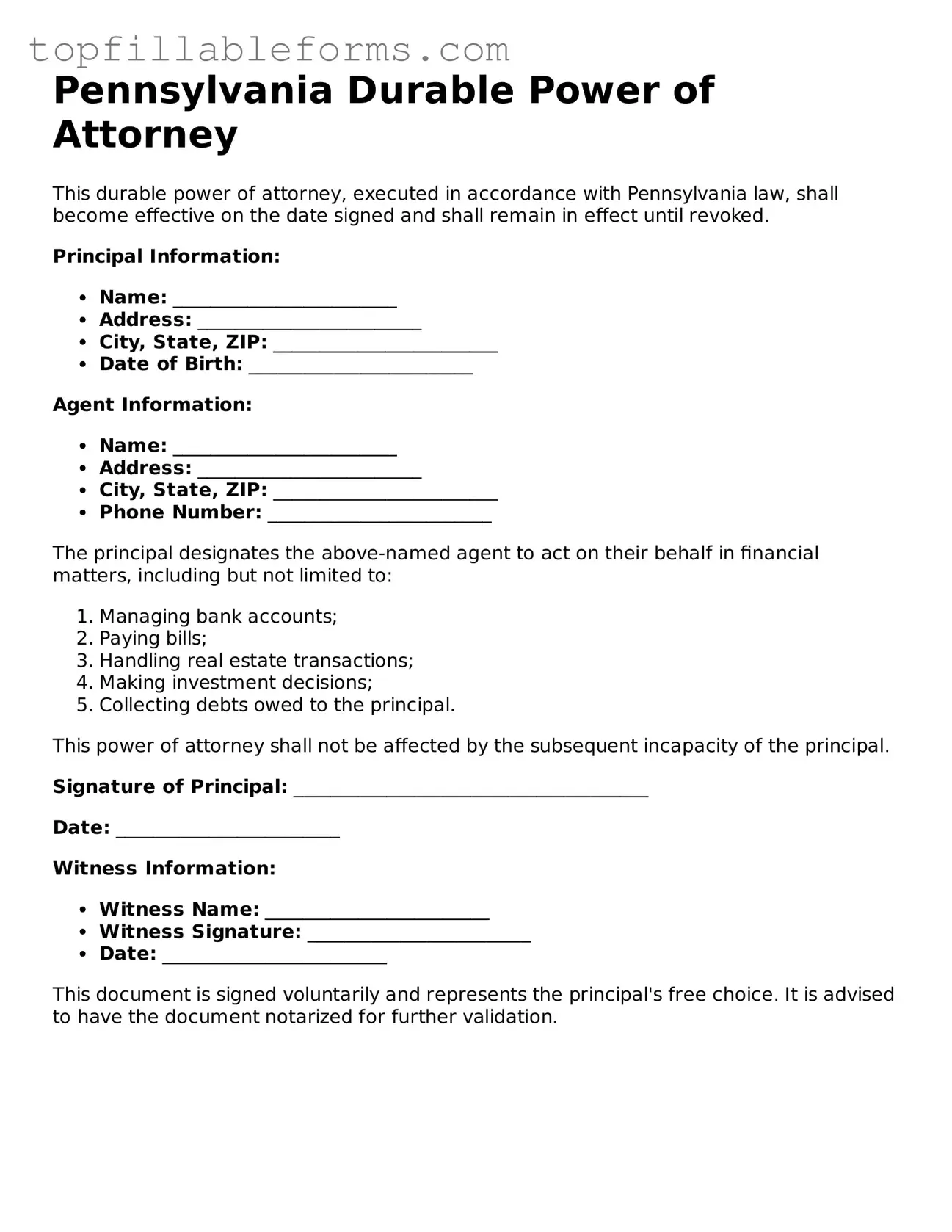Attorney-Verified Durable Power of Attorney Template for Pennsylvania
A Pennsylvania Durable Power of Attorney form is a legal document that allows an individual, known as the principal, to designate another person, called the agent, to make decisions on their behalf. This authority remains effective even if the principal becomes incapacitated. Understanding the nuances of this form is essential for ensuring that one's wishes are respected in times of need.
Open Durable Power of Attorney Editor Here

Attorney-Verified Durable Power of Attorney Template for Pennsylvania
Open Durable Power of Attorney Editor Here
Finish the form now and be done
Finish your Durable Power of Attorney online by editing, saving, and downloading fast.
Open Durable Power of Attorney Editor Here
or
▼ PDF File
